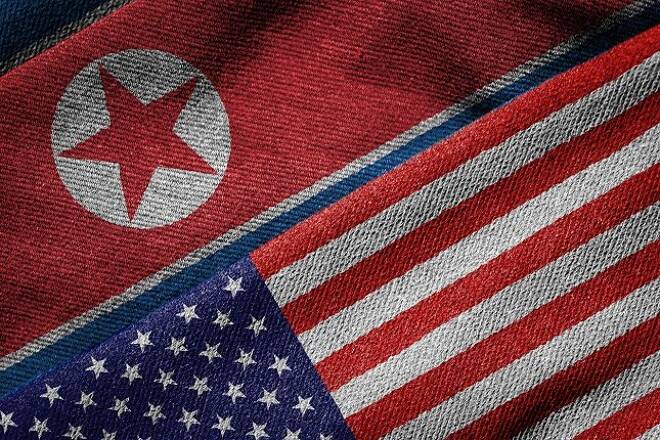Advertisement
Advertisement
North Korea – How Much of a Threat?
By:
By the end of World War II, United States and Soviet Union took over the Korean country, ending a long Japanese rule of 35 years.
By the end of World War II, the United States and the Soviet Union took over the Korean country, ending a long Japanese rule of 35 years. During the cold war, both countries remained in a perpetual state of war, faced equal economic, political and social status.
However, the fall of the Soviet Union has changed the balance of power – South Korea, then with a total population of 42 million and a member of the flourishing western economy, reached a safe political democracy to become a close ally of United States.
North Korea, a communist country in a desert of capitalism, had to adjust the new life without the protection of the Russian empire. The country declared to be self-protected, by all means, established a strong army and isolated itself from the rest of the world.
And indeed, the nation’s father Kim Jong Il has provided the poor country with a sufficient military force and ideology of resistance versus its longtime enemy South Korea and its big brother the United States. North Korea, a relatively small country in its size and population holds the fourth largest army in the world with a total of 1.2 million troops followed by China, the United States, and India. Obviously, as a percentage of the population, the country is ranked first.
Yet, there is one element that raises the international community concern – North Korea’s nuclear program. With the help of the Soviet Union, North Korea has begun to develop a nuclear weapon in 1963 and succeeded to preserve a secretive nuclear program till current days.
The Most Sensitive Area in The World
After conducted five successful tests in 2006, 2009, 2013 and twice in 2016, the international community restrained the country with sanctions. So far, in 2017, North Korea has launched eighteen missiles during twelve tests since February, an act that Washington could not let go of. Donald Trump definitely could not let go of North Korea’s last missile test, and warned them that the US will respond with ‘fire and fury’.
Donald Trump has mentioned North Korea threat before his presidential victory, he has no patience for these types of actions and the Trump administration will take an aggressive approach than Obama did in his campaign. Trump said recently that “the US will solve the North Korea problem, with or without China”. According to Pyongyang, Trump’s administration escalates the Korean conflict and turns the Korean peninsula into the “most sensitive area in the world”.
Regardless of what side creates the tension, the Korean threats increases as the US administration along with other countries will not accept missiles tests in open areas.
Trump faces his first diplomatic clash and the options are wide but limited: continuation of negotiations, more economic sanctions (might create problems with China), naval task force and a military action against North Korea. All options are valid, some are risky.
Stress grows in Beijing as well as the Chinese have been pressured by both sides. The Chinese are responsible to maintain a peaceful state in the Korean peninsula. While China pleads for calm and sends signals to Pyongyang to cool down the atmosphere, one could say that they will join the US if the conflict escalates. Yet, the Chinese long history along with its communist allegiance, and the economic benefits that the two countries share leave Beijing to be in the middle of this conflict.
If the US administration decides that they will not accept North Korea to hold a nuclear weapon, we have seen the consequences in Iraq and invasion is inevitable. Air-based attack and naval force actions are not practical. North Korea will resist invasion with its high-quality defense army facilities.
Both sides and the international community will try to avoid a military action as it will demand high cost by all means. However, a sustainable provocation by North Korea will leave no choice to Trump, a war bursts out of emotions and in an immediate reaction. The current situation must be solved with the help of China and Japan, otherwise, we will witness high technology war battles for the first time in history.
About the Author
Tom Chenauthor
Tom began trading currencies and commodities in 2005 which during this time he developed his approach and gained a strong understanding of the financial markets, macroeconomics, and geopolitics. He is an experienced writer with a wide knowledge of economics, politics and the financial markets.
Advertisement
